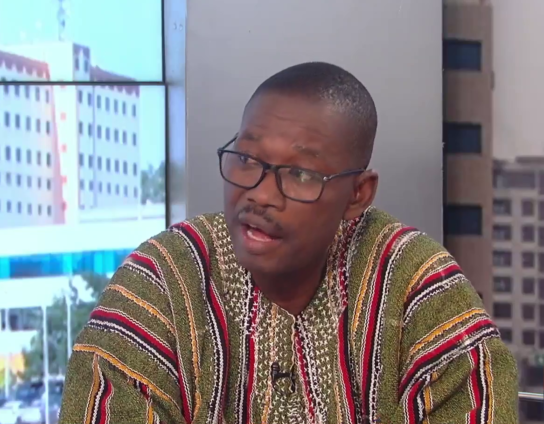Wa West MP and retired police officer, Peter Lanchene Toobu, has issued a firm call for the police deployed in Bawku to act with decisive impartiality as the conflict in the town deepens.
Speaking on Joy News’ PM Express on Monday, April 14, the former security officer stressed that neutrality is not enough — and in fact, not appropriate — in the face of rising lawlessness and deadly attacks.
“I want to encourage the men and women in uniform that in a situation like this, where it has become violent, professional hazards are expected,” he began, expressing his condolences to the families of victims and the Ghana Police Service following recent fatalities.
“That is why standard operating procedures are always strictly enforced.”
Lanchene Toobu urged police personnel to strictly observe safety protocols.
“You don’t go into town alone. You don’t go into town when you are not in uniform. You don’t go into town when you are not permitted by your command,” he said.
“It is restrictive because it has become a red zone. The risk is high, and when the risk is higher, people in uniform must be extremely careful.”
But for Lanchene Toobu, the biggest concern isn’t just the violence, it’s the role of the police in such a tense environment.
“I wouldn’t expect the police not to be neutral. The police should not be neutral in Bawku. They should be impartial,” he stressed.
“Simply put, you are not a friend to any of the feuding parties. You are interested in them coming together and living peacefully.”
His warning was clear: “If A is wrong, say so. If B is wrong, say so. But there shouldn’t be a point where the impartial arbiter — the person who is in the middle to create a buffer to bring peace — becomes a party to the matter and is being attacked. That’s very, very dangerous.”
Peter Lanchene Toobu also raised the alarm over weapons proliferation in the area, suggesting it’s feeding the conflict and putting everyone at risk, especially security personnel.
“We talk about the proliferation of illicit small arms and light weapons in this country. It is a big challenge,” he said.
“And we all believe that we need to do something very seriously to prevent it, very particularly in a volatile area like Bawku.”
He pointed to broader threats underlying the conflict, including the radicalisation of youth and illegal arms trading.
“It is possible that some people are interested in radicalising the youth. It is possible that people in the arms trade are making a lot of money from the area,” Toobu noted.
His call was for a national-level response to what he sees as a national conflict. “This conflict requires some level of sophistication in handling,” he said. “And that is why I support the President.”
Referring to President John Mahama’s remarks following his swearing-in, Toobu noted, “He said Bawku is a priority, and he demonstrated that.”
He praised the appointment of Otumfuo Osei Tutu II to lead a mediation process, saying, “That is the team that will have to drive a solution and bring peace to bear.”





















